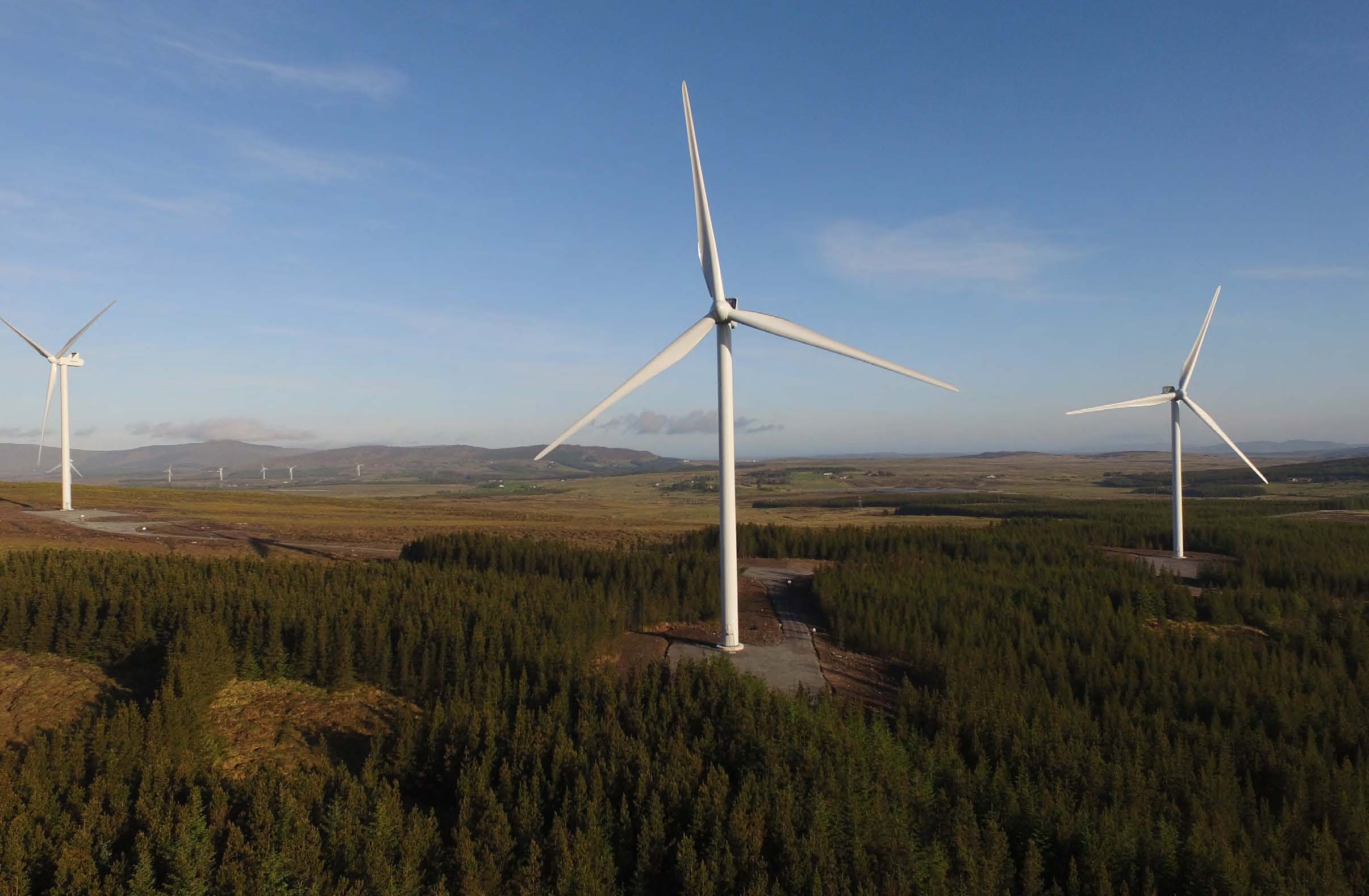Why renewable energy?
Climate Change
The Climate Change Act (Northern Ireland) 2022 set a target that by 2030, at least 80% of the electricity consumed in Northern Ireland must come from renewable sources generated within the region.
The latest figures from the Department for the Economy and the Northern Ireland Statistics
and Research Agency (NISRA) show that for the 12-month period ending June 2024, 45.8%
of total metered electricity consumption in Northern Ireland was generated from metered
renewable sources located in Northern Ireland.
This is a reduction of over 5% when compared with 2022 figures and means Northern
Ireland must significantly increase its levels of renewable energy generation between
now and 2030, and projects like the proposed Meenakeeran wind farm and battery energy storage scheme are urgently required to help make this happen.
Security of Supply and Cost
A secure and reliable electricity supply is essential not only for homes across Northern Ireland, but businesses, too. Increasing the amount of electricity we generate locally will make us less reliant on energy supplies from
other countries and continents. This is a safe and sustainable way of helping to ensure we
have all the energy we need to meet demand in the years ahead.
Increasing the amount of electricity generated locally also lessens our exposure to volatile
global fossil fuel prices, which is often the reason for increases in the cost of energy. A new report by Baringa Management Consulting entitled ‘Renewable Rewards: How you save from the switch to renewable energy’ showed that between 2020 and 2023 renewable electricity saved each consumer £160 off their bills.
The report also shows that if the 80% by 2030 target is achieved, it will create savings of more than £55per person in 2030.
Economic Investment
Renewable energy represents one of the biggest economic opportunities in Northern
Ireland. The projects needed to achieve the 80% by 2030 target involve private investment in the local economy, job creation,
opportunities for suppliers and service providers, increased rates to the NI Executive and local authorities, as well as opportunities for farm diversification and additional income streams for farmers.
Renewable energy projects also support local groups and organisations through community benefit funds. These are often in rural, underfunded areas that otherwise struggle to attract the support they need.
Renewable NI figures show that renewable energy projects currently generate circa £3 million per year in rates to Derry City and
Strabane District Council; this figure will grow further as new projects are progressed to meet the 80% renewable electricity by 2030 target.




